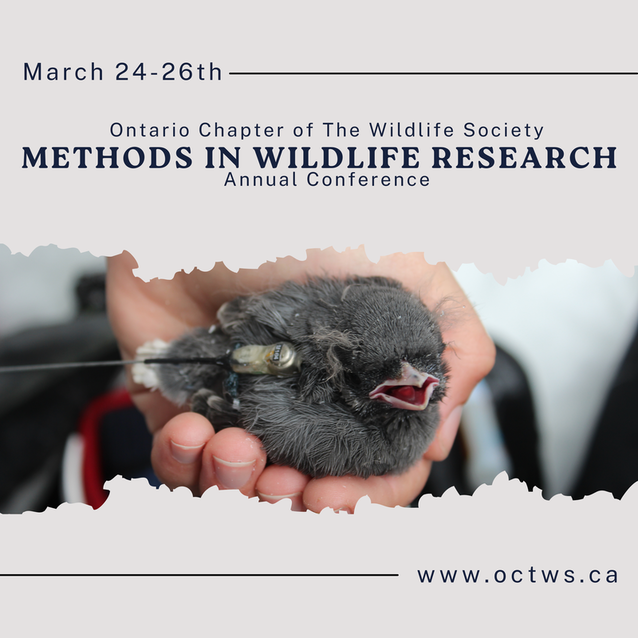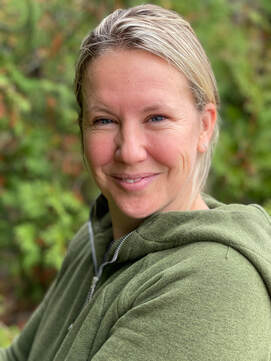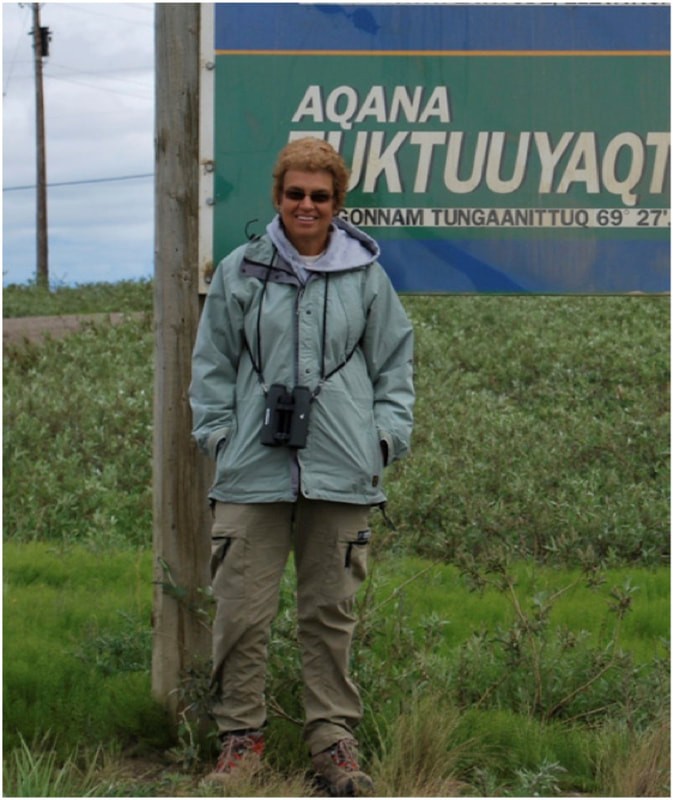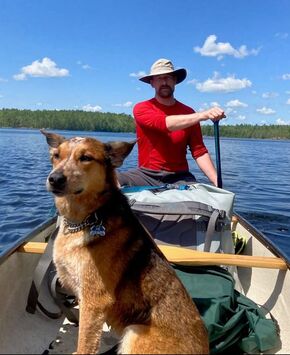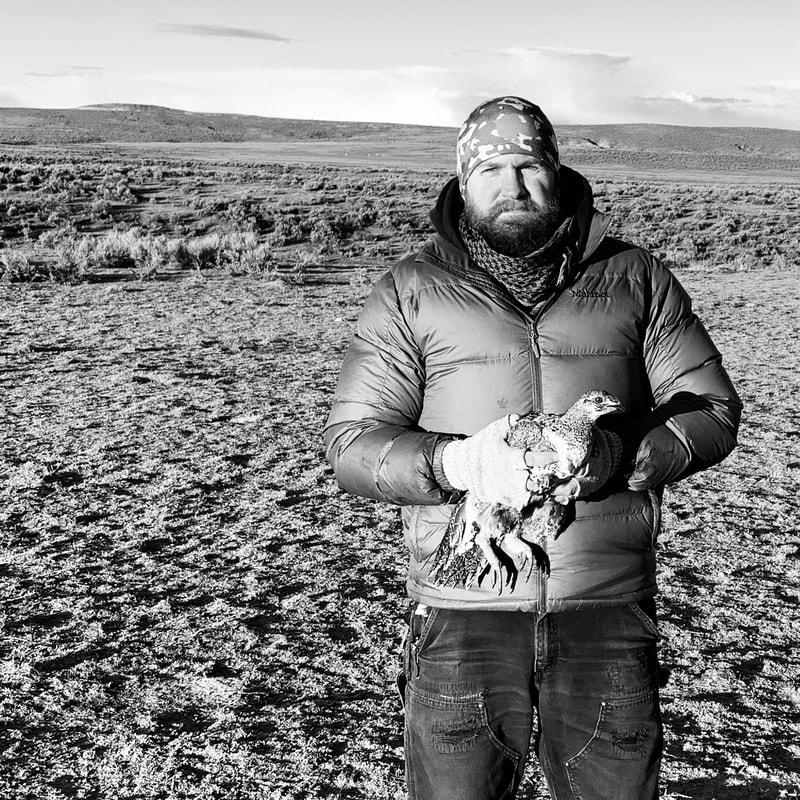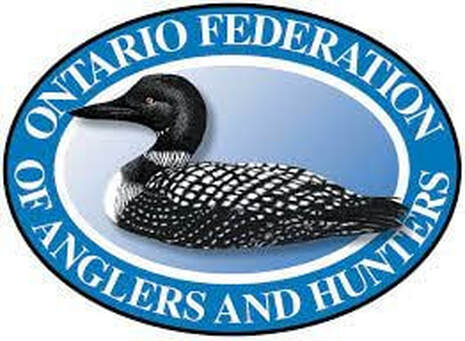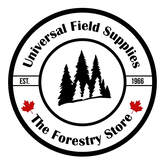Annual OCTWS Conference & General Meeting
Our 2023 conference will be a hybrid format with in-person events held in Peterborough
Program
|
Important Dates
Call for abstracts & student travel awards (closed) Abstract & student travel awards due February 3rd, 2023 Registration opens February 10th, 2023 Deadline to book a room at the Holiday Inn at a discounted rate February 24th, 2023 In-person registration will include the following meals:
Saturday: coffee break, lunch, and banquet dinner Sunday: continental breakfast for anyone attending the AGM Vegetarian options will be available. Please specify on your registration form if you have any dietary restrictions. |
Friday, March 24th
Analysis/R workshops (hybrid) Introduction to stable isotope assignment in R (9:30) Introduction to movement ecology (12:30) Introduction to Bayesian inference using R & JAGS (2:45) Saturday, March 25th Methods in Wildlife Research Plenary (in person & live-streamed) Jessica Linton - Natural Resource Solutions Inc. Dr. Erica Nol - Trent University Philip DeWitt - OMNRF Contributed Paper Presentations (in person & live-streamed) Student Posters (in person & virtual) Banquet dinner (in-person) Student Presentation Awards (in-person) Student-Professional Mixer (in-person) Sunday, March 26th OCTWS Annual General Meeting (in-person & live-streamed) Contributed Paper Presentations Continued (in-person & live-streamed) Keynote Speaker (in-person & live-streamed) Dr. Brad Fedy - University of Waterloo |
Contributed Talks |
Registration |
|
Our call for abstracts is now closed.
|
The deadline to register for in-person attendance is Tuesday, March 21st, at midnight. The deadline to register for virtual attendance is Friday, March 24th, at midnight.
|
PAnel SPeakers
|
Specialized field methods for studying cryptic species at risk
Jessica Linton, M.E.S. Natural Resource Solutions Inc Jessica Linton is a Senior Biologist and Environmental Consultant at Natural Resource Solutions Inc. in Waterloo, ON. Her consulting work is varied and involves overseeing Environmental Impact Studies, Environmental Assessments, Natural Heritage Studies, and specialized wildlife surveys and monitoring programs. A large portion of Jessica's work is focused on species at risk as as part of this work she has been appointed as a member of the Committee on the Status of Endangered Wildlife in Canada (COSEWIC) Arthropod Species Specialist Subcommittee and as Chair of the Ontario Butterfly Species at Risk Recovery Team.
|
How do they get from point A to point B? A brief review of movement ecology in birds
Erica Nol, PhD Trent University I started my ornithological career surveying waterfowl during winter along a river in southeastern Michigan, as part of my Bachelor's degree. This led me to work for Dr. Ricky Dunn on nesting Black Terns at Long Point, ON, where I also helped with the bird banding operation there. I was introduced to banding shorebirds by Michael Bradstreet, a well- known local biologist who taught me how to catch Killdeer on the nest. That experience gave me the opportunity to band and mark shorebirds in large numbers in James Bay with Dr. Guy Morrison. I then worked as a consultant one summer where I had the privilege of traveling, for the first time, to the Canadian Arctic, where I was delighted and intrigued by the aerial displays of breeding shorebirds and their habitats. I was hooked on both the arctic and breeding shorebirds. I conducted my master's thesis research on Killdeer and then my Ph.D. research on American Oystercatchers. I conducted work on Killdeer and Snipe for a post-doctoral project, as well as a range of breeding shorebirds nesting in and around Churchill, MB, a hot spot for shorebird diversity because of its mix of habitat from boreal to tundra. After my appointment at Trent University in Peterborough, ON, I started my long-term study on Semipalmated Plovers and have been engaged in over 30 years of research and graduate teaching in various arctic and sub-arctic locations and on several species. Much of this work has been in collaboration with other shorebird researchers who have greatly enhanced my understanding and contributed to my fondness for this interesting (and now declining) group of birds! My long-term study on Semipalmated Plovers has moved from their breeding to their migratory and non-breeding areas including Brazil, Venezuela, Suriname, French Guiana and Cuba. Shorter term studies on Whimbrel (Numenius phaeopus), Dunlin (Calidris alpina), Red-necked Phalaropes, and other species have focussed on understanding how current and future habitat changes will alter their probability of success, movements and persistence across their annual cycles.
|
Camera traps: a wealth of information amid a bestiary of challenges
Philip DeWitt Ontario Ministry of Natural Resources and Forestry Philip DeWitt is a Senior Biologist with the Ontario Ministry of Natural Resources and Forestry. His work primarily focuses on quantifying ecological relationships between wildlife, habitat, climate, and human activities using a combination of empirical and simulation methods. His areas of specialization include wildlife ecology, applied statistics, data analysis, and landscape-scale monitoring. Phil has worked in both the private and public sectors, and currently leads the technical design and delivery of various provincial wildlife monitoring programs for the Ministry’s Science and Research Branch.
|
Keynote speaker
Developing model complexity in the analysis of wildlife data
Brad Fedy, PhD
University of Waterloo
Brad Fedy, PhD
University of Waterloo
Dr. Fedy is an Associate Professor at the University of Waterloo. His research examines the factors that influence the fitness of animal populations at multiple scales–from genes to landscapes. Much of the research in his lab emerges from important conservation issues; however, they also endeavour to answer general ecological questions to improve concepts and theory in ecology and evolution. Research in his lab focuses on wildlife questions examining habitat selection, landscape genetics, population trends, and social behaviour. This has led to expertise in multiple field-based methodologies including, animal capture and handling, wildlife survey techniques, telemetry, camera-traps, and drones. His research uses multiple analytical approaches applied to both empirical and simulated data. He has published using non-linear modeling, Bayesian approaches, mixed-models, circuit theory, machine learning, multivariate statistics, and landscape genetic analyses. Dr. Fedy also teaches a graduate-level methods class that surveys both qualitative and quantitative methods.
Workshops
Friday, March 24th | Advance registration required | Space limited
Workshop descriptions are available here
Workshop descriptions are available here
|
Introduction to movement ecology in R
Jed Long, PhD
|
Introduction to stable isotope assignment in R
Jackson Kusack, MSc
|
Introduction to Bayesian inference for ecologists with R and Jags
Simon Bonner, PhD
|
Venue
in-person event location - saturday and sunday
In person events (Saturday and Sunday) will be held at the Holiday Inn - Waterfront
150 George St N, Peterborough, ON
Accommodations can be booked at a discounted rate until February 24th
150 George St N, Peterborough, ON
Accommodations can be booked at a discounted rate until February 24th
workshop location (friday)
Workshops on Friday, March 24th will be held at Trent Universities Catherine Parr Traill College in Wallis Hall.
315 Dublin Street
Peterborough, ON
315 Dublin Street
Peterborough, ON
Sponsorship & donations
Gold Tier
Silent Auction Donations
Respectful Conduct
We are committed to fostering a welcoming and inclusive community. Unacceptable behaviour includes any discrimination, harassment, or verbal remarks related to race, gender, sexual orientation, religious beliefs, disabilities, or physical or mental health. Any harassment, discrimination, unwanted interest, or any behaviour that makes an attendee of this conference feel uncomfortable will not be tolerated. We are always here to learn and support you - if you have felt uncomfortable for any reason during this event, please email us.
